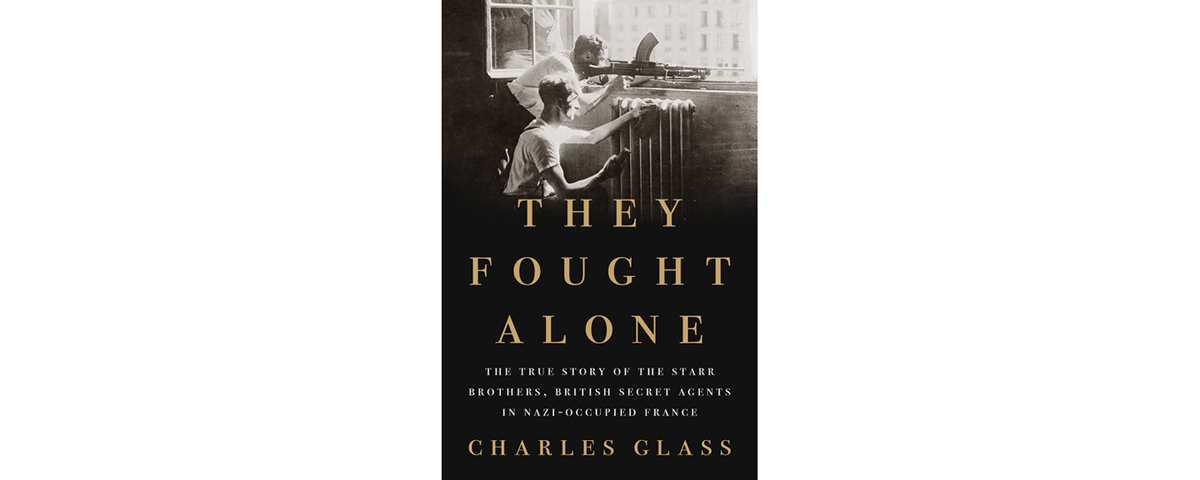They Fought Alone: The True Story of the Starr Brothers, British Secret Agents in Nazi-Occupied France, by Charles Glass, Penguin Press, New York, 2018, $28
The title of this book is, of course, overstatement. Brothers George and John Starr were agents of the Special Operations Executive (SOE), the British espionage service formed in 1940 to organize and assist resistance fighters in Nazi-occupied Europe during World War II. Hyperbole aside, They Fought Alone is often engrossing (and sometimes peeving) and raises intriguing questions about the effectiveness and morality of the Starrs’—and SOE’s—activities.
George and John Starr were living in Belgium and France, respectively, when the war broke out, and both joined the British army. After the Wehrmacht overran most of Western Europe, the bilingual brothers were recruited and trained by the SOE, then dispatched to France to help organize the Resistance, sabotage German infrastructure and arrange air drops of supplies and arms.
George was assigned to southwest France. Posing as a retired Belgian engineer, he was able to forge résistants of disparate loyalties into a unified fighting force. During the D-Day landings in Normandy his guerrillas destroyed infrastructure, delayed the crack SS panzer division Das Reich from reaching the vulnerable beachhead and even seized a cutting-edge Heinkel He 177 A-5 bomber. Unfortunately, despite his accrued honors and promotions, George fell under a cloud when one of his couriers accused him of torturing and murdering two captured Gestapo agents. His superiors buried the results of a subsequent investigation.
John’s war was grimmer. Assigned to central France in 1943 to organize a Resistance network, he was betrayed by a double agent, arrested and tortured. Held captive at the Paris headquarters of German intelligence, he received more lenient treatment after drawing charts and maps for his captors and cleaning up their English for Funkspiel, the successful radio-messaging disinformation campaign that targeted SOE and the Resistance. Toward war’s end the thankless Germans transferred John to two brutal concentration camps before he was liberated. Was he a traitor? Both the British and French scrutinized his wartime activities and concluded he wasn’t.
While it’s difficult in places to keep track of the characters in this book—everyone has one or more aliases—author Charles Glass’ underlying narrative is absorbing. They Fought Alone is at its best in detailing the many missteps committed by SOE, whose London leadership exhibited more hubris than common sense and fell prey to cunning German counterintelligence ploys. Such lapses convey the real chaos of war. The result is an unnerving chronicle of British bureaucratic obtuseness that resembles Catch-22 more than The Guns of Navarone.
—Howard Schneider





